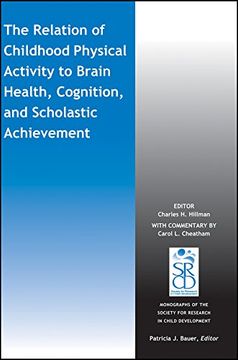Share
The Relation of Childhood Physical Activity to Brain Health, Cognition, and Scholastic Achievement
Hillman, Charles H. ; Cheatham, Carol L. ; Bauer, Patricia J. (Author)
·
Wiley-Blackwell
· Paperback
The Relation of Childhood Physical Activity to Brain Health, Cognition, and Scholastic Achievement - Hillman, Charles H. ; Cheatham, Carol L. ; Bauer, Patricia J.
Out of Stock
We'll email you when the book is available again
Synopsis "The Relation of Childhood Physical Activity to Brain Health, Cognition, and Scholastic Achievement"
There is a growing public health burden of inactivity in industrialized nations. In recent years, children have become increasingly inactive, leading to concomitant increases in the prevalence of being overweight and unfit. Inactivity during childhood has implications for the prevalence of several chronic diseases (e.g., obesity, type 2 diabetes) observed in adulthood. These 'adult-onset' diseases have also become more prevalent during childhood and adolescence, exacerbating the need to develop novel treatments that provide enduring benefit by altering the chronic and oftentimes debilitating course of these lifestyle diseases. Of further interest is the absence of public health concern for the effect of inactivity on brain health and cognition. It is curious that this has not emerged as a larger societal issue, given its obvious relation to childhood obesity and other inactivity-related disorders that have captured the United States and other industrialized nations. Many schools have minimized physical activity opportunities despite a growing literature indicating their benefits to cognition and learning. Such educational practices are increasing in popularity due to budgetary constraints and an increased emphasis placed upon student performance on standardized tests. It is counterintuitive that spending less time in the classroom and more time engaged in physical activities might improve learning, yet research is consonant in suggesting that physical activity benefits brain health and cognition. Accordingly, this monograph describes a body of research, which examines the complex relationship of physical activity to cognitive and brain health from a translational perspective, with the goal of maximizing effective function across the lifespan.

